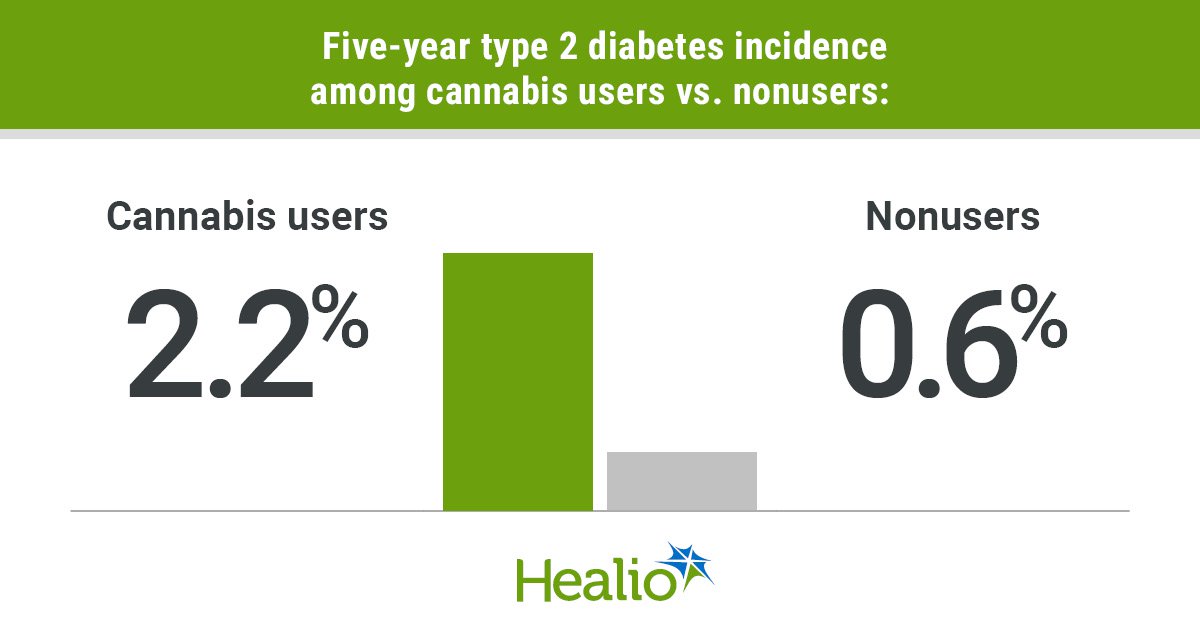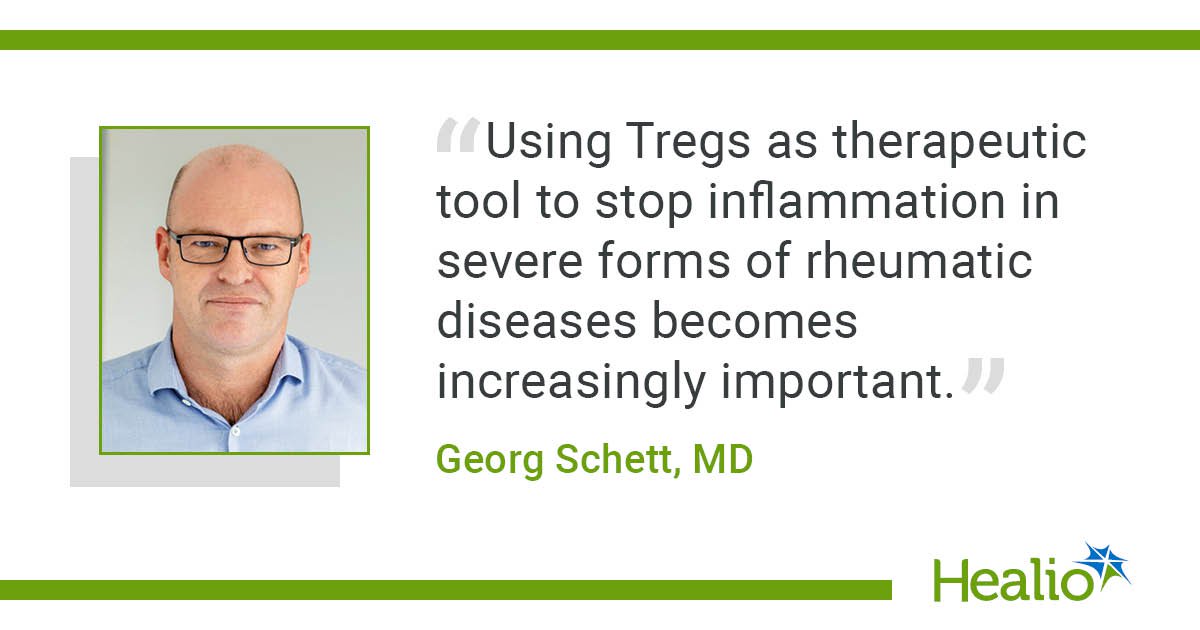September 23, 2025
2 min read
Key takeaways:
- Adults diagnosed with a cannabis-related disorder have more than threefold higher odds for developing type 2 diabetes.
- More research is needed to assess the effects of cannabis on other endocrine conditions.
Adults who use cannabis were more likely to develop type 2 diabetes than nonusers, according to findings presented at the European Association for the Study of Diabetes annual meeting.
In an analysis of data from 54 health care organizations in the TriNetX Research Network, adults who had a cannabis-related ICD-10 code in their electronic health record were 3.8 times more likely to be diagnosed with type 2 diabetes within 5 years than those without any indication of cannabis exposure. Ibrahim Kamel, MD, MHA, chief resident at Boston Medical Center and clinical instructor at Boston University Chobanian & Avedisian School of Medicine, said the findings reveal the importance of screening for cannabis use.

Data were derived from Kamel S, et al. Poster presentation 354. Presented at: European Association for the Study of Diabetes Annual Meeting; Sept. 15-19, 2025; Vienna.
“Clinically, physicians should screen for and counsel on the risk of cannabis use,” Kamel told Healio. “People should know what the risk is in the substances they use and make the choice that they feel is right.”

Ibrahim Kamel
In a retrospective study, researchers identified 96,795 adults with a cannabis-related diagnosis from 2010 to 2018. Among that group, 86,414 adults using cannabis (mean age, 28.5 years; 52.9% women; 59.5% white; 29% Black; 11.6% Hispanic) were matched, 1:1, with a comparator group of adults who did not use cannabis and had no major chronic health conditions. New-onset type 2 diabetes diagnoses were collected during a 5-year period following each participant’s baseline outpatient visit.
There was higher incidence of diabetes among adults who used cannabis compared with controls (2.2% vs. 0.6%; risk difference, 1.6 percentage points; 95% CI, 1.5-1.8; P < .0001). Adults in the cannabis group were more likely to be diagnosed with type 2 diabetes during follow-up than those in the comparator group (OR = 3.8; 95% CI, 3.45-4.19). Five-year diabetes-free survival was lower among adults using cannabis vs. nonusers (96.82% vs. 99.15%).
Kamel said he was surprised to see how much higher the odds for type 2 diabetes were with cannabis use.
“Occasionally, cannabis has been marketed as harmless, and now more and more signals of harm are appearing,” Kamel said.
In a press release, Kamel and colleagues acknowledged that the study’s retrospective design “cannot prove that cannabis use causes diabetes.” Some of the limitations of the study include the potential for inconsistent reporting in electronic medical records, a risk for bias due to the imprecise measures of cannabis exposure and reliance on self-reported cannabis use.
The researchers added that more research is needed on whether cannabis use leads to other adverse endocrine outcomes and if the increased risk for diabetes persists with edible forms of cannabis.
For more information:
Ibrahim Kamel, MD, MHA, can be reached at ikamel@bu.edu or on X @ibrahim_kamel9.










